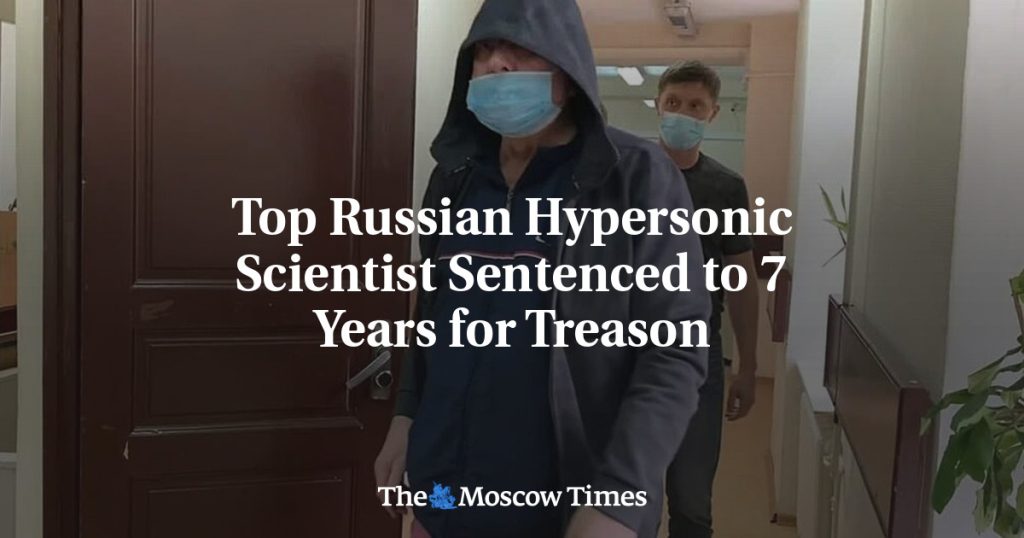A top Russian scientist, Alexander Kuranov, who was developing hypersonic technologies, has been sentenced to seven years in prison for state treason. Kuranov, who oversaw the Soviet-era Ayaks hypersonic aircraft program, was arrested in 2021 at the age of 73. He was accused of working with and passing on scientific advances to foreign nationals. The St. Petersburg City Court found Kuranov guilty and sentenced him to seven years in a high-security prison, along with a fine of 100,000 rubles.
It took two trials to reach the verdict in Kuranov’s case, with the proceedings being held behind closed doors due to the presence of a “Top Secret” stamp on the case. The spokesperson for St. Petersburg’s judiciary did not specify which mitigating circumstances led to the lower-than-maximum sentence of seven years. The verdict comes amid a rise in state treason convictions in Russia since tensions with the West escalated following the annexation of Crimea from Ukraine in 2014 and the full-scale invasion of Ukraine in 2022.
According to Supreme Court data analyzed by independent media, there have been record numbers of convictions for state treason, espionage, and disclosure of state secrets in 2023. Critics have denounced the arrests of scientists, journalists, and civilians on charges of sharing sensitive information with foreigners as a sign of the state’s paranoia. This crackdown on individuals involved in fields such as science and journalism has raised concerns about freedom of expression and collaboration with international partners in Russia.
Kuranov’s case is seen as part of a broader trend of targeting individuals working in strategic industries for alleged treason. Scientists involved in sensitive technological developments have faced increased scrutiny and prosecution for sharing information with foreign entities. The secretive nature of the trials and lack of transparency in the legal processes have raised questions about the fairness and legitimacy of the convictions.
The sentencing of Kuranov has sent shockwaves through the scientific community in Russia, with many expressing concerns about the impact on research and collaboration in the field of hypersonic technologies. The case has highlighted the risks faced by scientists and researchers working on cutting-edge projects in an environment of heightened political tensions and suspicion. The government’s crackdown on alleged traitors has created a climate of fear and uncertainty among professionals in strategic sectors.
As Russia continues to crack down on individuals accused of state treason, the case of Alexander Kuranov serves as a stark reminder of the consequences of sharing sensitive information with foreign entities. The conviction of a prominent scientist like Kuranov has underscored the government’s determination to protect its technological secrets and maintain control over strategic industries. The broader implications of Kuranov’s case for the scientific community and international cooperation remain to be seen, but it sets a troubling precedent for researchers and experts in Russia.


